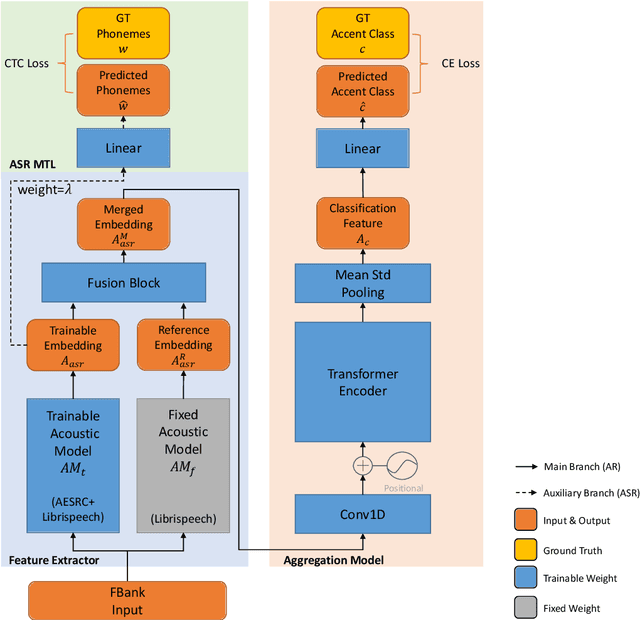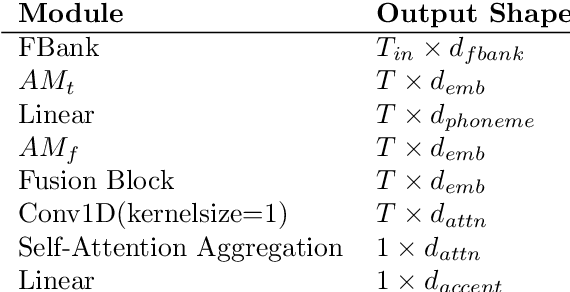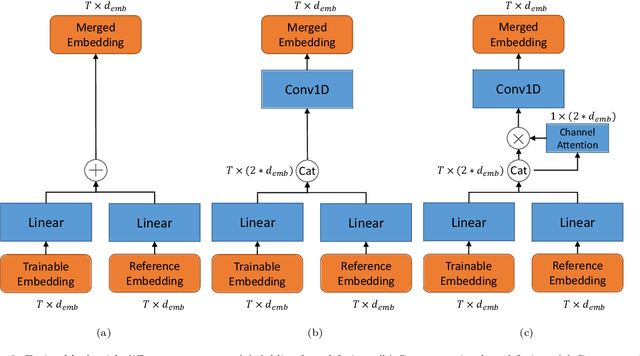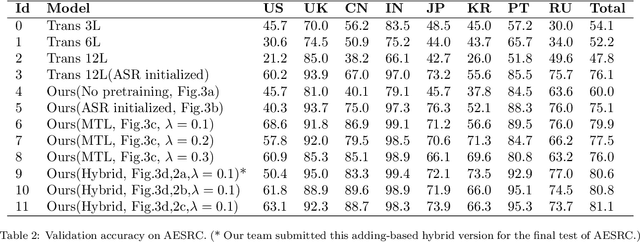Accent Recognition with Hybrid Phonetic Features
Paper and Code
May 05, 2021



The performance of voice-controlled systems is usually influenced by accented speech. To make these systems more robust, the frontend accent recognition (AR) technologies have received increased attention in recent years. As accent is a high-level abstract feature that has a profound relationship with the language knowledge, AR is more challenging than other language-agnostic audio classification tasks. In this paper, we use an auxiliary automatic speech recognition (ASR) task to extract language-related phonetic features. Furthermore, we propose a hybrid structure that incorporates the embeddings of both a fixed acoustic model and a trainable acoustic model, making the language-related acoustic feature more robust. We conduct several experiments on the Accented English Speech Recognition Challenge (AESRC) 2020 dataset. The results demonstrate that our approach can obtain a 6.57% relative improvement on the validation set. We also get a 7.28% relative improvement on the final test set for this competition, showing the merits of the proposed method.
 Add to Chrome
Add to Chrome Add to Firefox
Add to Firefox Add to Edge
Add to Edge